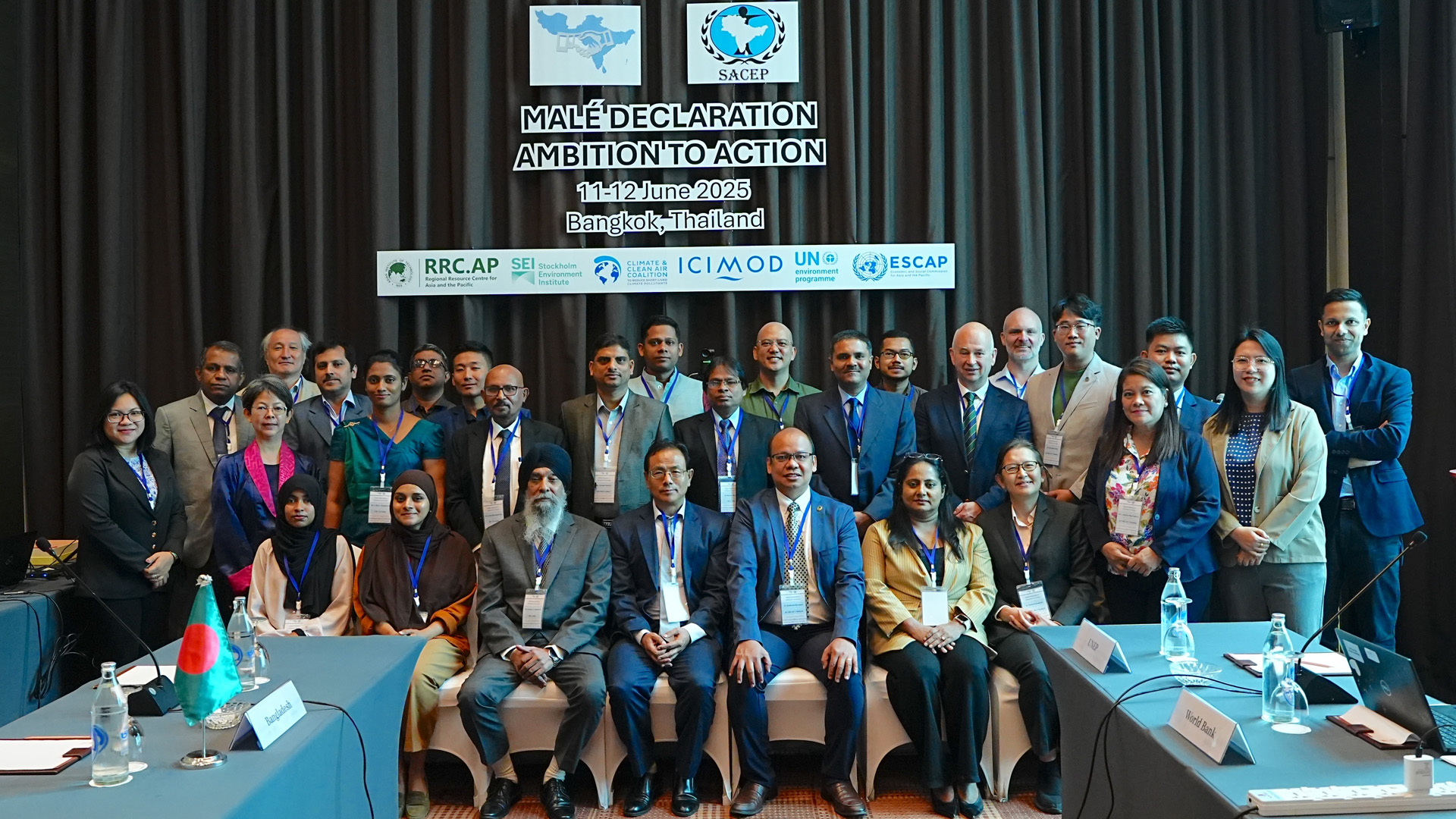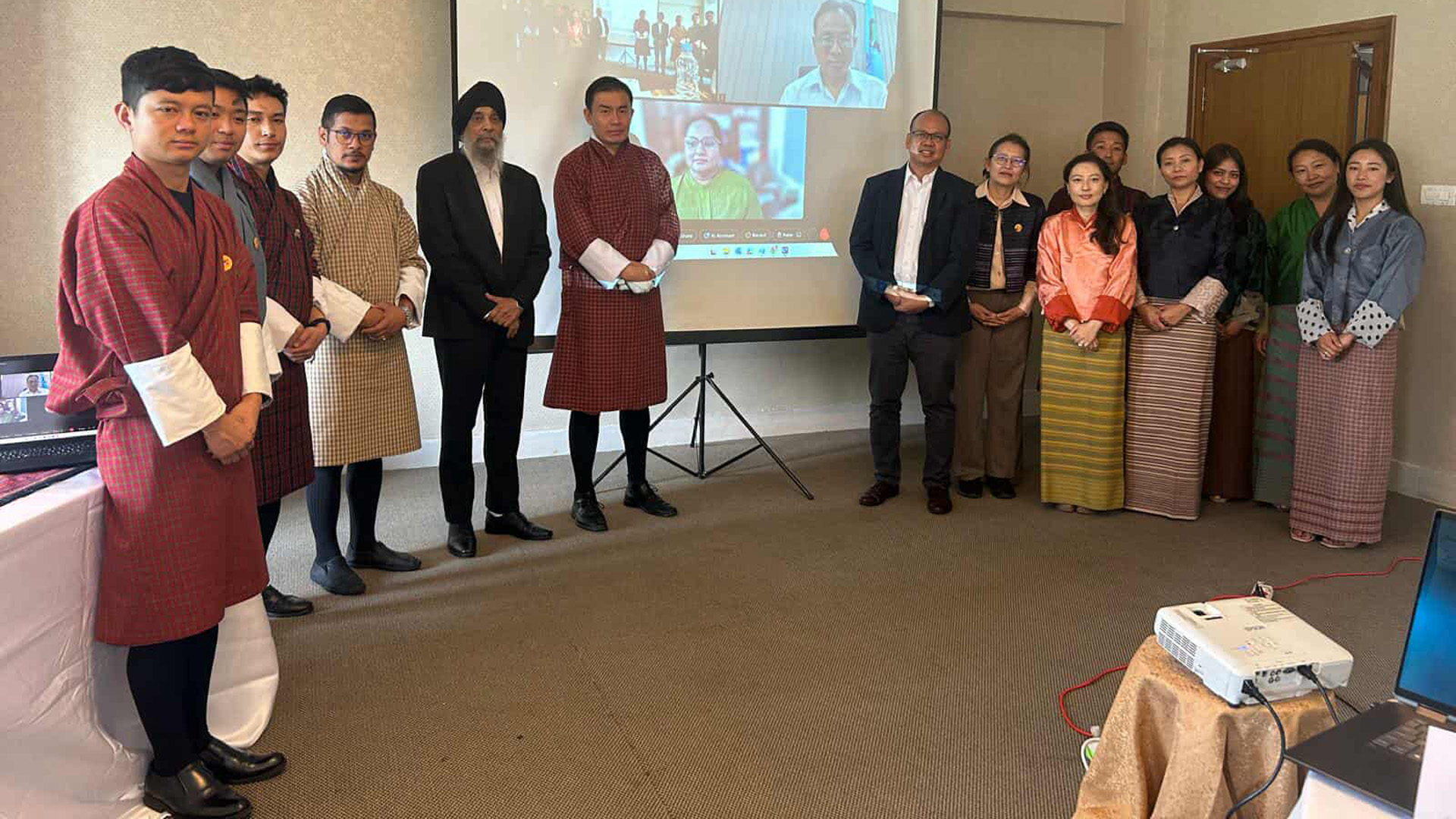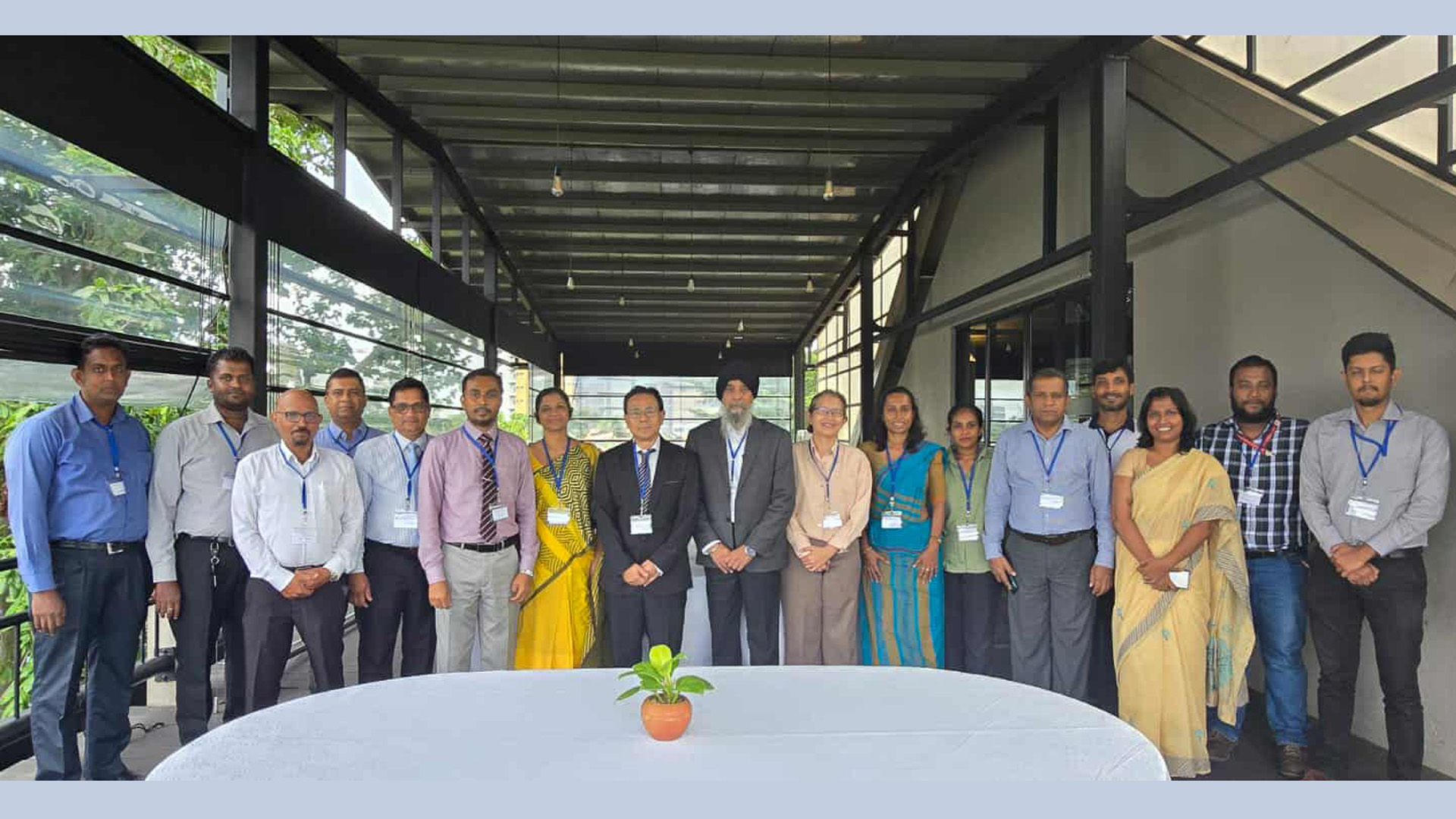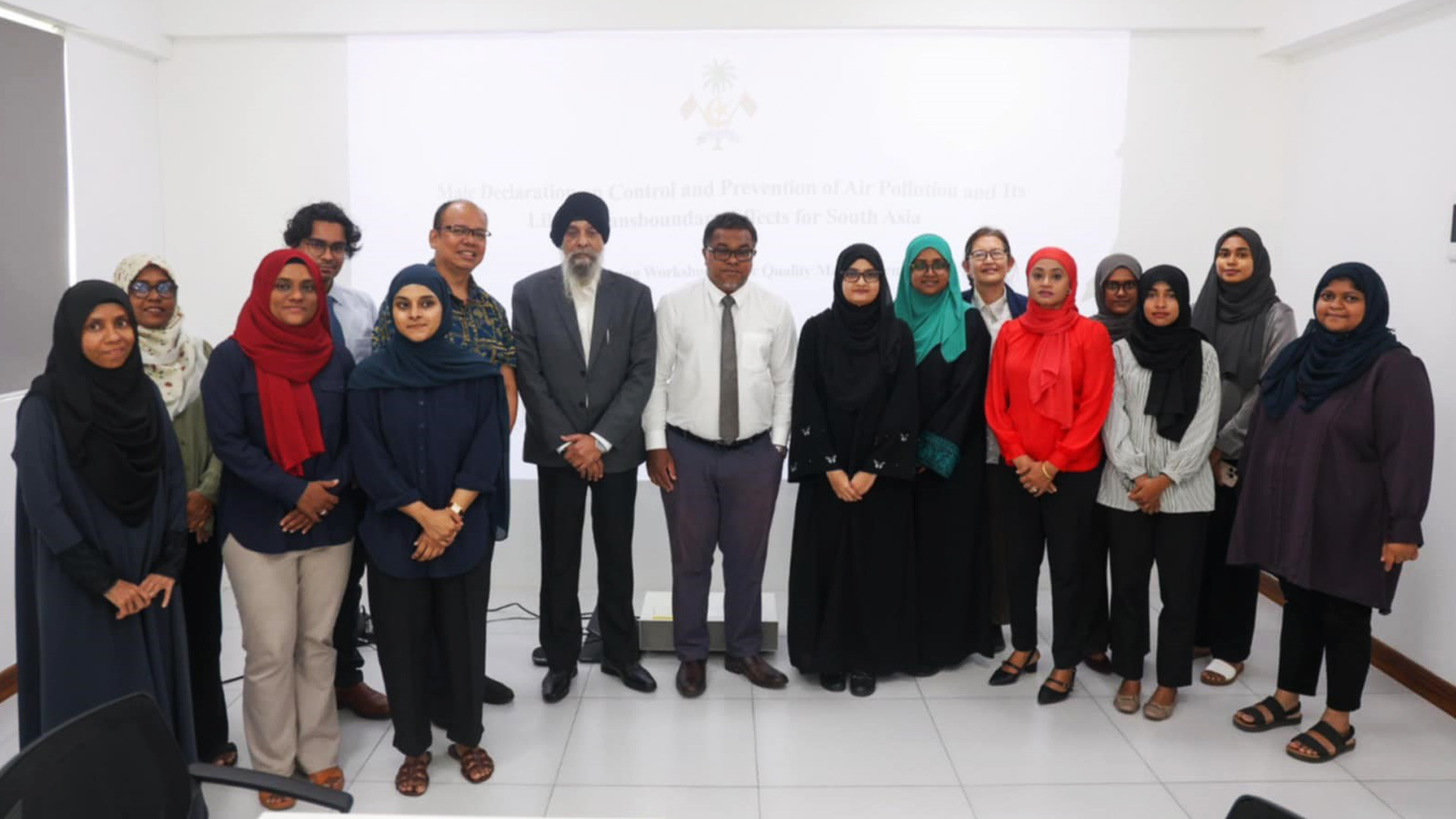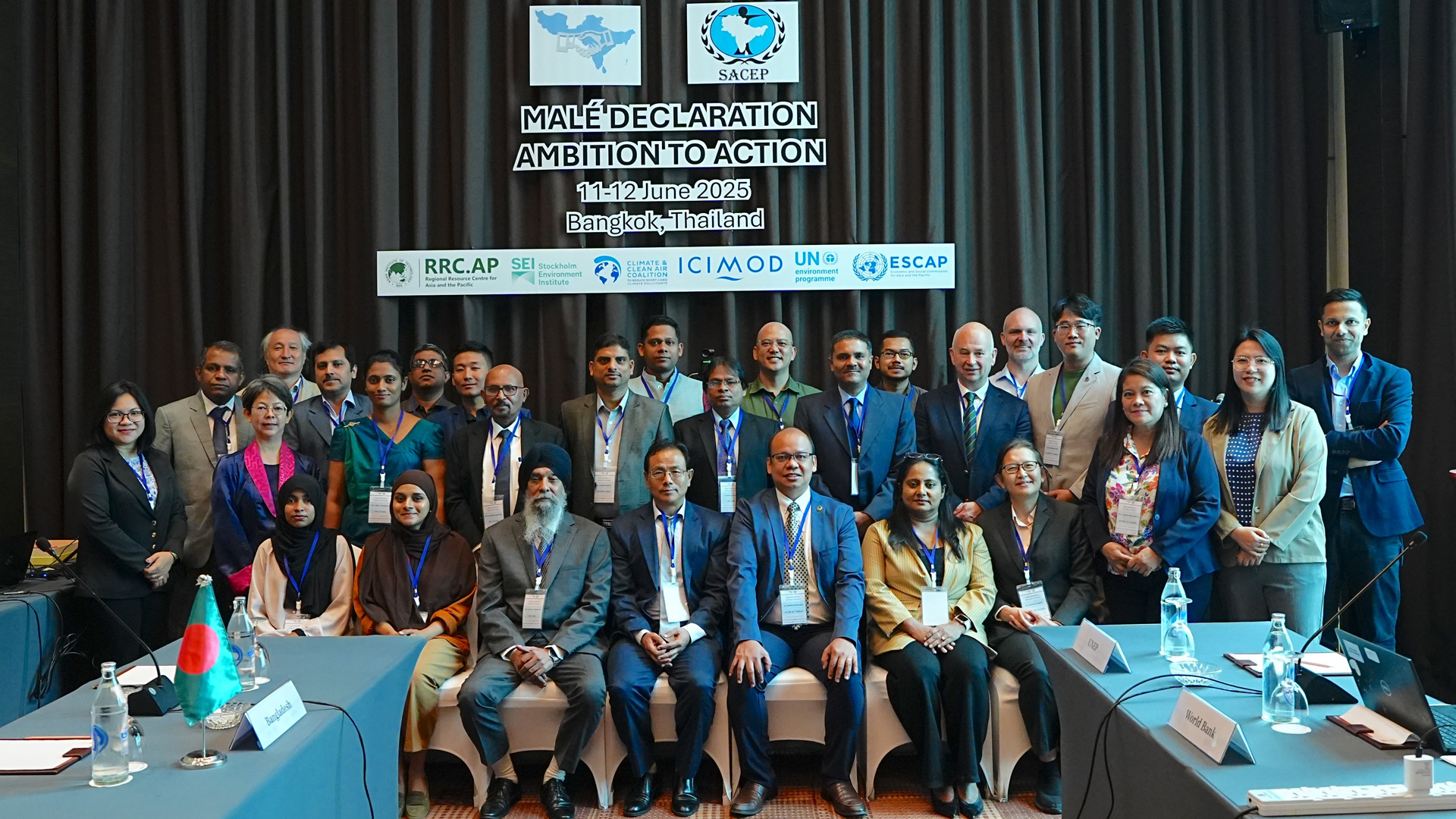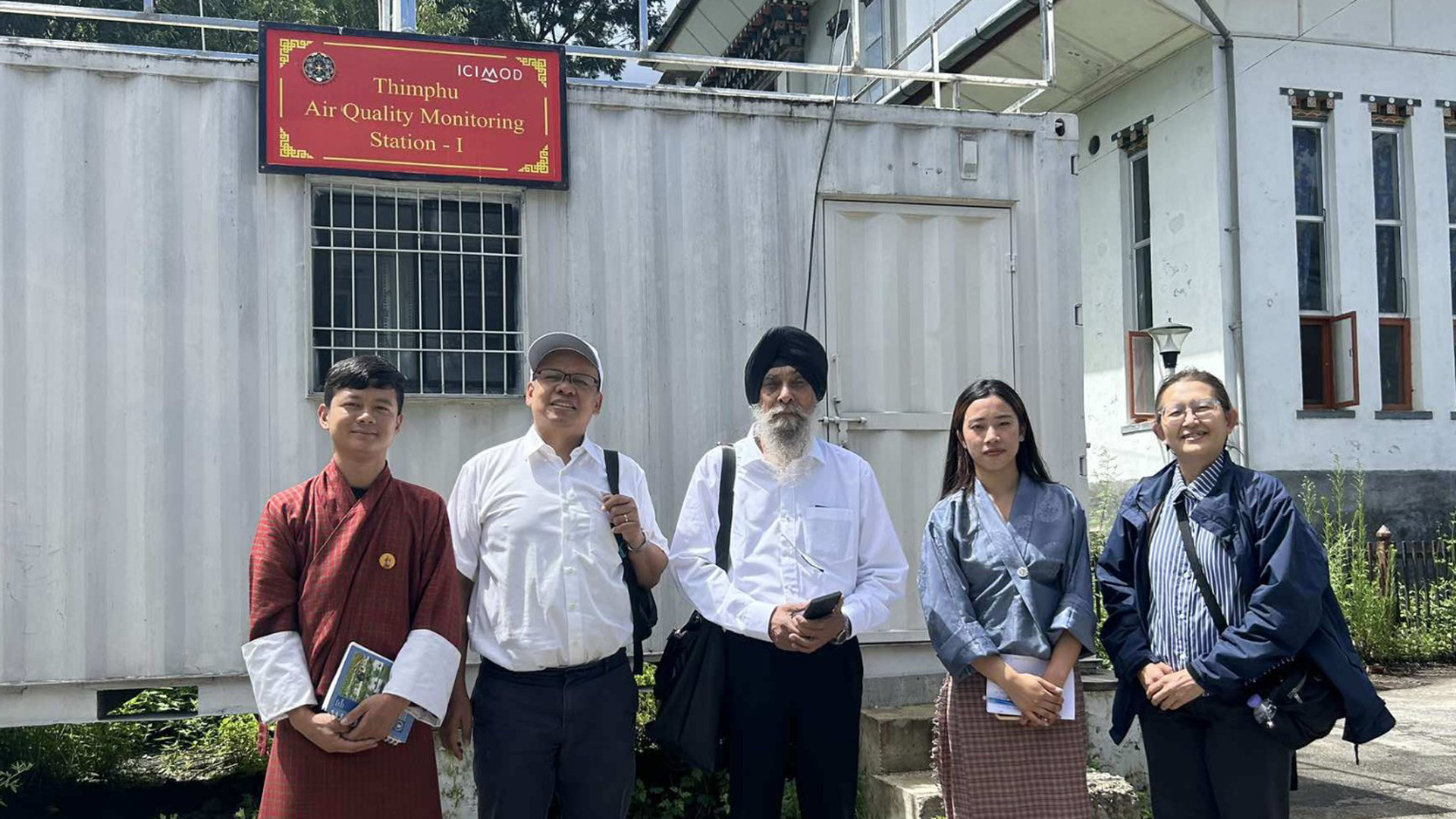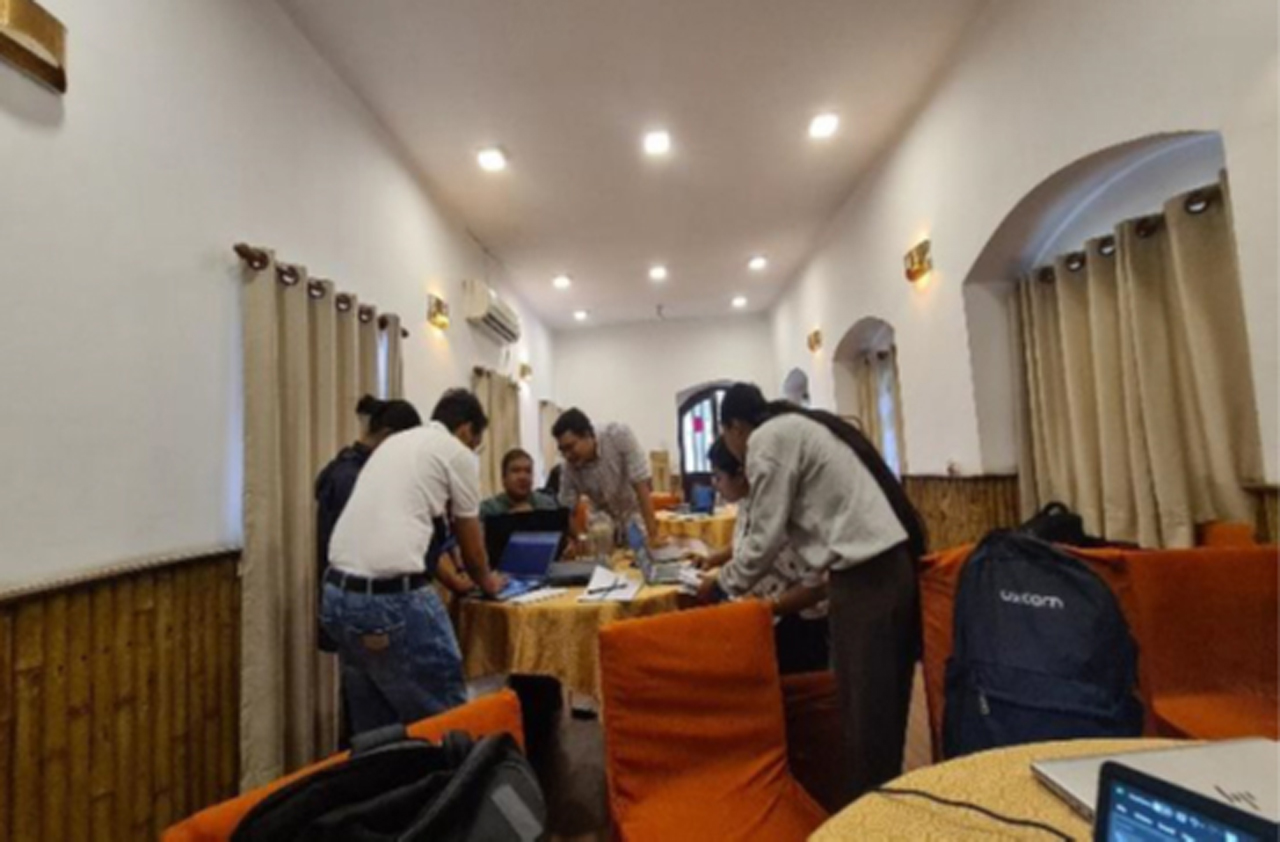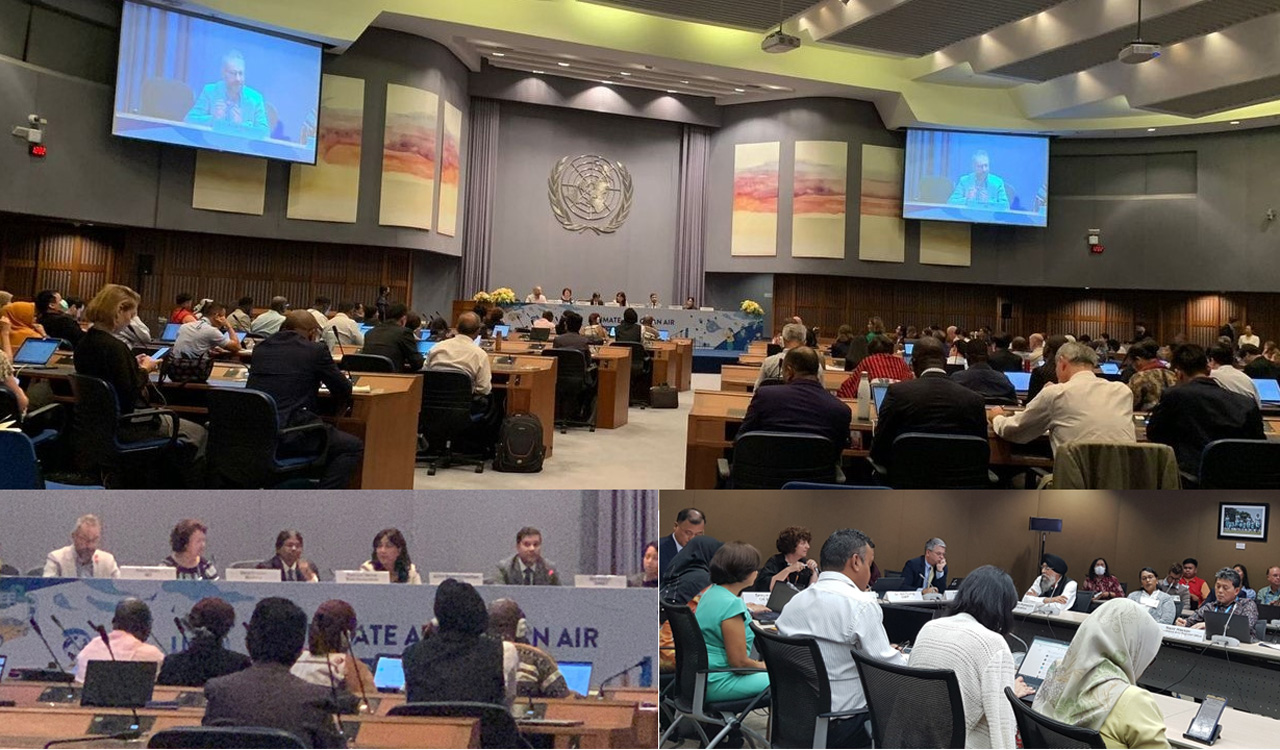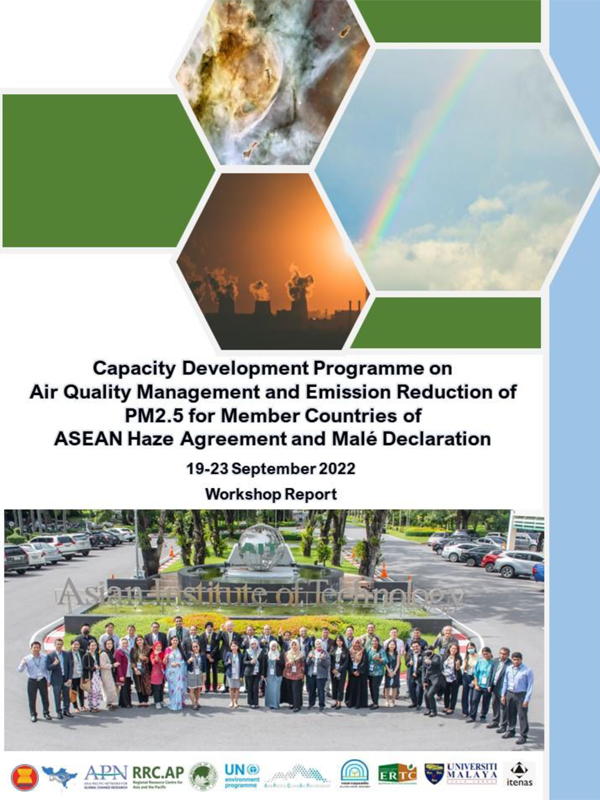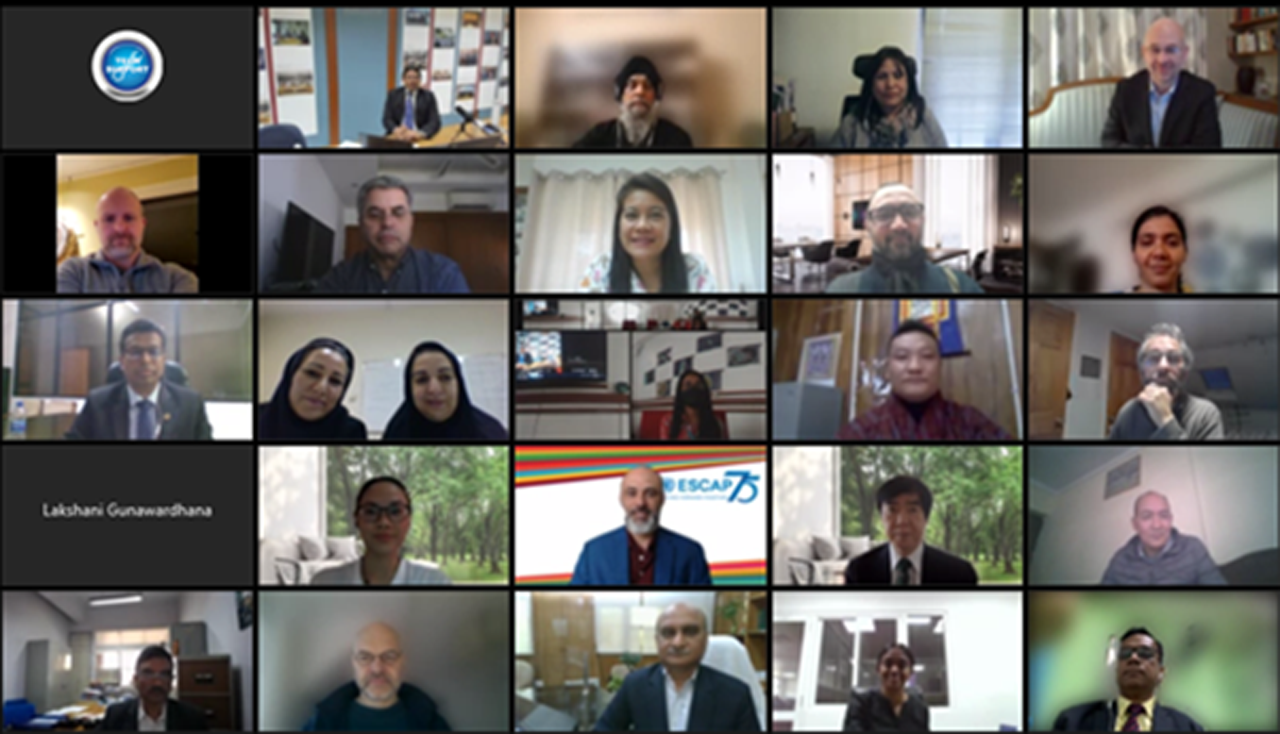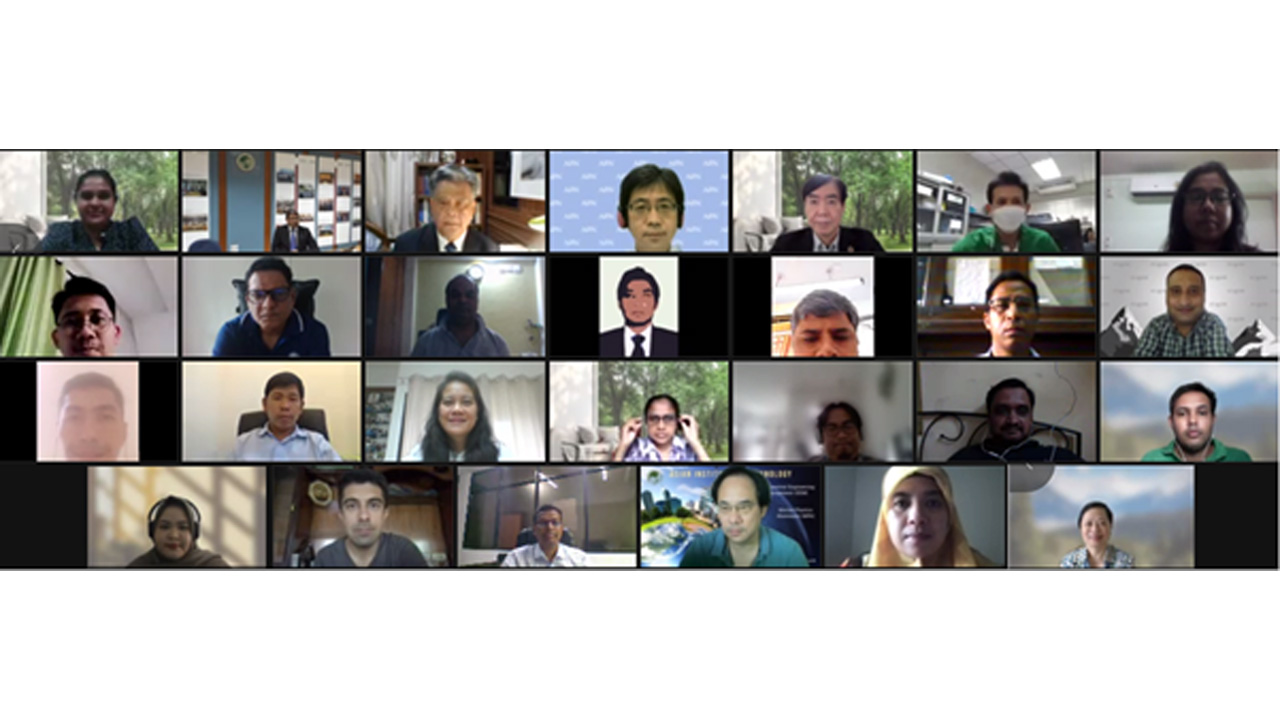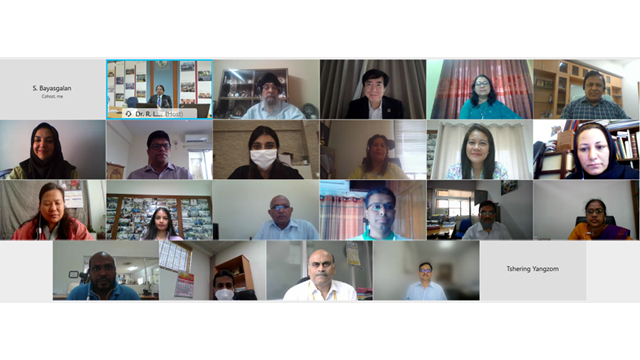Background
In 1998, the United Nations Environment Programme (UNEP), together with the Stockholm Environment Institute (SEI) drew attention to the possibility of the impacts of transboundary air pollution in South Asia. This initiative led to the adoption of the Malé Declaration on Control and Prevention of Air Pollution and Its Likely Transboundary Effects for South Asia (Malé Declaration). The Malé Declaration’s objective is to aid the process of providing a clean environment through clean air. The Declaration calls for regional cooperation to address the increasing threat of transboundary air pollution and its possible impacts. Its implementation has been carried out in phases. The eight member countries of Malé Declaration include Bangladesh, Bhutan, India, Iran, Maldives, Nepal, Pakistan and Sri Lanka. ... READ MORE
The workshop “Malé Declaration – Ambition to Action” was held on 11–12 June 2025 in Bangkok, Thailand, to revitalize the Malé Declaration and foster renewed regional collaboration to address air pollution challenges across South Asia. The workshop featured key discussions on the Think Piece (Vision Paper), the Strategies and Work Programme for the Next Phase, and the Scoping Study commissioned by SACEP to support the revival of the Malé Declaration.
During the meeting, the representatives of the member countries of the Malé Declaration agreed on the following actions:
1. The Scoping Study, developed using information provided by the member countries, will be circulated by SACEP, Secretariat, to all member countries by 30th September 2025, for sharing their comments by 31st October 2025;
2. The secretariat and AIT RRC.AP (technical partner) will develop activities including sharing information and holding online webinar on air quality management;
3. Workplan will be elaborated including fund-raising for Malé Declaration implementation;
4. The relationship between Malé Declaration and other initiatives in the region, including RAPAP, IGP-HF and initiatives outside the region, such as ASEAN Haze Agreement, EANET, Asian Co-benefit partnership, Northeast Asia Clean-Air Partnership. LRTAP, and others will be strengthened;
5. Increase interaction with key organizations, like ICIMOD, Clean Air Fund, World Bank, CCAC, UNEP, UNESCAP, GIZ, ADB, and others., to establish clear working relationships and communication, to synchronize activities, leverage mutual strengths and support resource mobilization efforts.
MORE DETAILS
